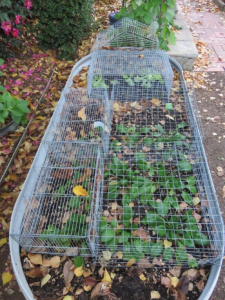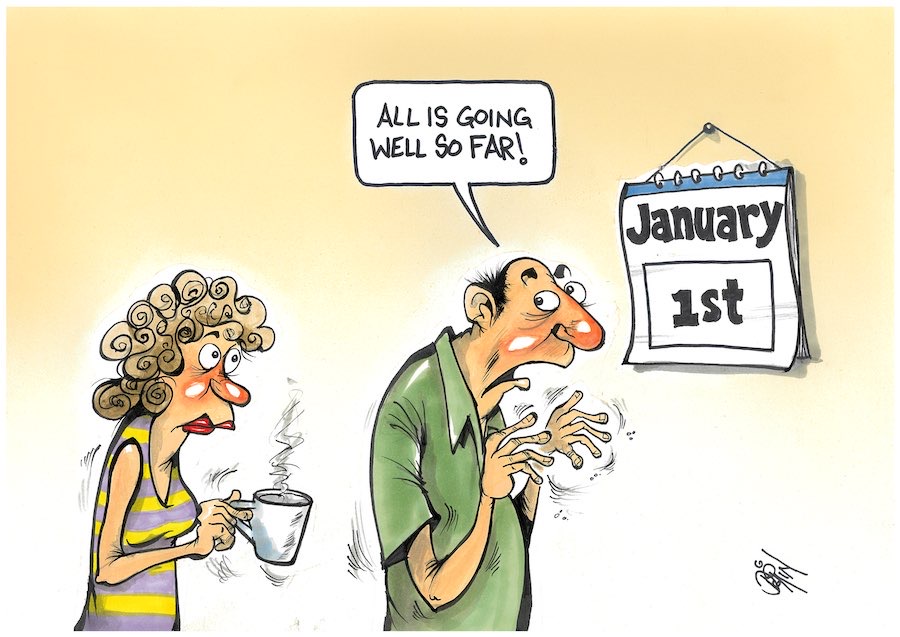WHILE I prefer to highlight trees and shrubs when they are in bud before flowering, with some rare plants it’s best to buy them when you can.

One such is Acacia leprosa “Scarlet Blaze”, the red wattle.
As we all know, the wattle in our national flower is yellow. This one is a rare exception with red flowers.
A single specimen was found amongst the traditional yellow wattles by a group of bushwalkers in the Black Range Forest, north-east of Melbourne in 1995. It was taken to the Royal Botanic Gardens in Melbourne for identification and where just three cuttings grew from the original, which later died.

Fortunately these cuttings survived and now all subsequent specimens for sale came from these three. It was registered as unique with the Plant Variety Rights. It was released for sale by Plant Growers of Victoria in time for the floral emblem of the Victorian Bicentenary Celebrations. This one is planted at our Botanic Gardens in Canberra. It needs some space as it would appear to grow to more than five metres. Frost and drought hardy, it would make an interesting conversation plant in any garden.
RECENTLY, I mentioned English primroses, Primula vulgaris, and readers have reported not being able to find them anywhere, as opposed to yellow polyanthus.
I contacted David Glenn, of Lambley’s Nursery in Victoria, the home of rare plants. Primroses are not really a rare plant, although to my knowledge not commercially grown here. Glenn says they recently potted hundreds of true primroses, which should be available in spring.
I also bemoaned the problem with English bluebells taking over our garden. Equally so the bulb Brodiaea laxa or Triteleia, commonly called Star of Bethlehem, with its prolific, tiny, blue flowers in spring. Yes, itprovides a sea of blue to brighten any garden and, yes, it spreads like wildfire, often smothering out other smaller plants. For a large garden where nothing seems to grow, say under deciduous trees, go for it. For really small gardens there are many other bulbs more suitable.

AS we plant the winter veggies there are few insects about, but not so the other veggie-eating creatures, including possums or the family dog or cat digging in the garden. I have found a cheap and effective method of protecting the crop by using old bird cages. I buy them from the Green Shed. They are very strong and come in an assortment of sizes and some of the larger ones I cut in half.
ONE of the advertisers on the garden page is the Hay Shed in Pialligo with its pulverised horse manure. I thought I’d try it on our garden.
Normally I don’t recommend horse manure because the horses are often fed with oats, resulting in a good crop of the same in the garden.
However, the horses at the Hay Shed are primarily fed with lucerne hay plus supplementary pellets, hence no weed problem. The stables use sawdust rather than straw. In cleaning out the stables, the sawdust and the horse poo are stored in huge bins, composted by turning over for several months.
The result is a completely rotted down fine material for improving by mixing in with garden soil. It’s ideal for all garden beds, especially for veggies and available by the bag or trailer load. The Hay Shed’s at 7 Beltana Road, Pialligo.
Jottings…
- Garlic for planting or eating is best bought at the Farmers Market rather than supermarkets where generally it is imported and treated with chemicals.
- Time to feed all daphne, azalea and rhodo plants as the buds continue to form for late winter/spring flowering.
- I have ascertained that Griselinia littoralis, which I mentioned a couple of weeks ago, is now readily available.
Who can be trusted?
In a world of spin and confusion, there’s never been a more important time to support independent journalism in Canberra.
If you trust our work online and want to enforce the power of independent voices, I invite you to make a small contribution.
Every dollar of support is invested back into our journalism to help keep citynews.com.au strong and free.
Thank you,
Ian Meikle, editor




Leave a Reply